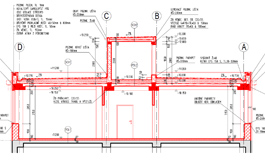
In the biological complex of the ASCR in Krč, a new research center will be opened
 |
Scientists now have access to top-notch technologies needed for research on medically important molecules so that serious diseases can be detected in a timely manner and their mechanisms understood better. "The very detailed analysis of proteins, fats, carbohydrates, which all these devices allow, helps in detecting binding and various chemical substances, their interactions, so the applications are extremely broad," stated Bilej.
The Institute of Microbiology is implementing the project within the Operational Program Prague - Competitiveness. The budget exceeded 94 million crowns, most of which went, according to Bilej, on equipment. The institute collaborated with the University of Chemistry and Technology in Prague, Palacký University in Olomouc, and Charles University in Prague.
Nearly thirty scientists will work at the new research center, and it is expected that the project will offer additional jobs in the near future. "For us, it brings both an expansion of laboratory space, but mainly what is most important - equipment with top-notch devices for studying the structure of proteins and other chemical substances," emphasized the head of the institute.
The "Prague Infrastructure" project combines two fundamental analytical techniques - mass spectrometry and nuclear magnetic resonance - to address key biomedical questions, with an emphasis on the diagnosis of infectious and neoplastic diseases and the definition of relevant therapeutic targets.
Some of the equipment is unique in the Czech Republic. For example, the new ion cyclotron will enable the analysis of structures of biologically significant substances, especially large biomolecules such as proteins or parts of nucleic acids. These compounds may serve as molecular markers for the onset of various diseases or describe previously unknown biological processes.
The Institute of Microbiology boasts a forty-year tradition in the analysis of natural substances and biomolecules. Its scientists have, for example, succeeded in identifying biomarkers (measurable characteristics) of the rare hereditary Fabry disease. They are working, for instance, on determining the relationship between the formation of cataracts and the chemical composition of the eye lenses.
The English translation is powered by AI tool. Switch to Czech to view the original text source.
0 comments
add comment










